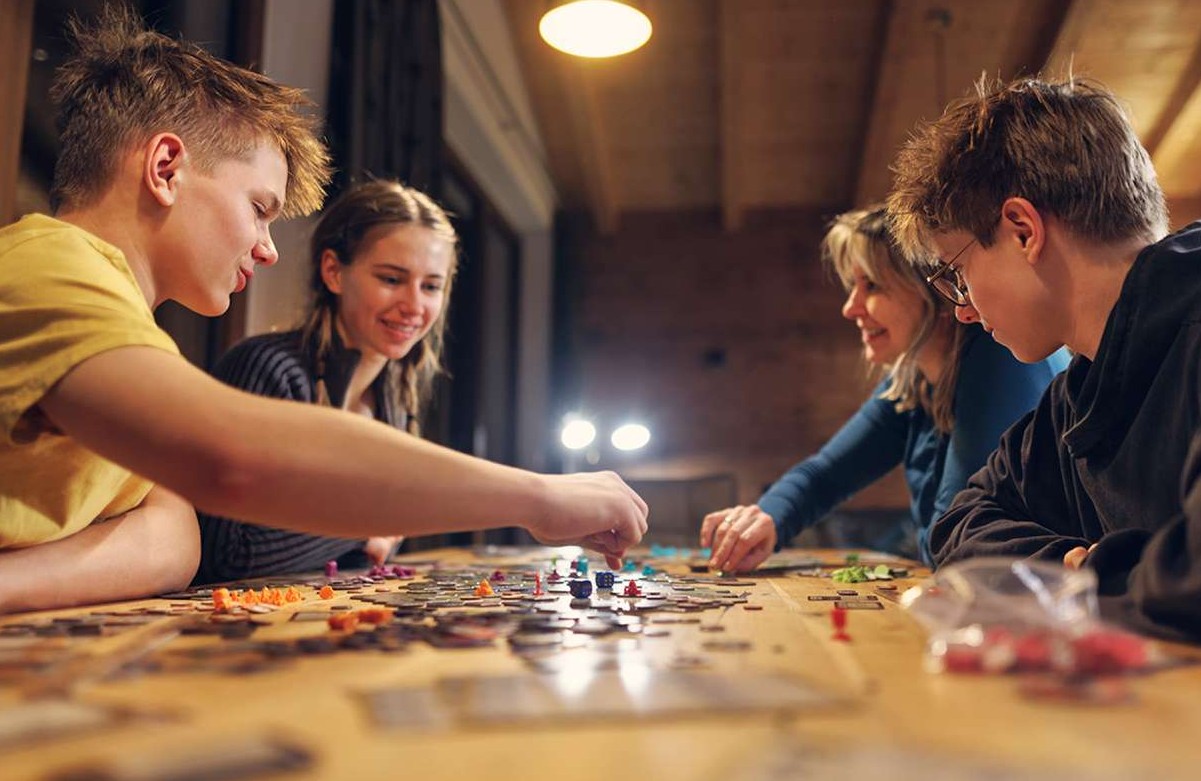GAMES for Fun and Engagement
🎲 Board Game Club – Connecting Through Play
Games have a unique way of breaking down barriers, creating laughter, and opening doors for real connection. By playing board and card games with the youth, you’ll build relationships, model healthy interaction, and encourage teamwork and communication — all while having fun.
Many of the residents have never played classic games like Go Fish, Hearts, or Crazy Eights, so every session is an opportunity to share something new and meaningful.
What You’ll Do
- Spend a couple of hours 2–4 times each month, on weekends or weekday evenings.
- Join a cottage (living quarters for 10–17 youth) to play games and connect through conversation.
- Be a good listener, offer encouragement, and simply enjoy the moment together.
- Choose from our growing stash of donated games — or bring a favorite of your own to teach.
Use provided games or suggest your own.
Volunteer requirements & next steps
- Background check and brief orientation required before volunteering regularly.
- Scheduling is flexible — we’ll help you arrange it with your cottage staff.
Want to support the fun?
If you’d like to donate a youth-requested game, you can order directly from our Amazon Wish List.
Ready to play and make a difference?
EMAIL US to learn more or get started.

Playing board games with incarcerated youth can offer a range of benefits, impacting their cognitive, social, and emotional well-being. Here’s a breakdown:
Social Benefits:
- Social Interaction and Connection: Board games provide opportunities for face-to-face interaction, fostering communication, teamwork, and building social bonds.
- Development of Prosocial Behaviors: Games can encourage cooperation, turn-taking, and other positive social behaviors.
- Learning to Manage Conflict: Playing games can provide a safe space to practice conflict resolution and negotiation skills.
Emotional Benefits:
- Stress Relief and Relaxation: Engaging in enjoyable activities like board games can help reduce stress and promote relaxation.
- Boosting Mood and Self-Esteem: The fun and social interaction associated with board games can trigger the release of endorphins, leading to improved mood and potentially increased self-esteem.
- Promoting Emotional Regulation: Learning to handle winning and losing gracefully can help develop emotional regulation skills.
Cognitive Benefits:
- Improved Cognitive Function: Board games exercise the brain, stimulating areas responsible for memory, complex thought processes, and decision-making.
- Enhanced Strategic Thinking & Problem Solving: Many board games require players to plan, strategize, and make choices to achieve their goals, fostering critical thinking skills.
- Increased Focus and Attention: Engaging in games can help improve concentration and attention span, potentially benefiting individuals with ADHD or similar challenges.
By thoughtfully incorporating board games into programming for incarcerated youth, facilities can potentially create a more positive and rehabilitative environment.